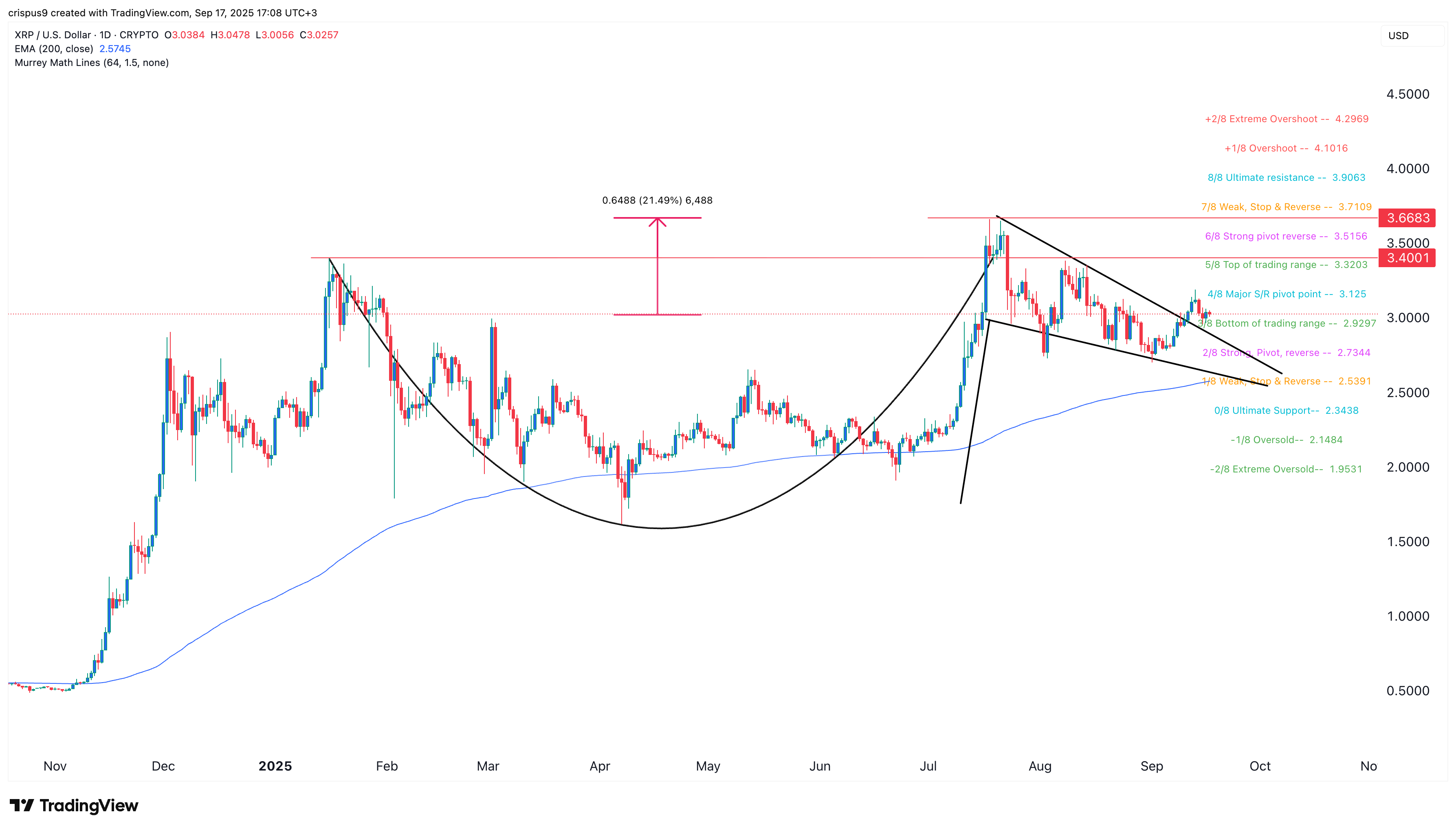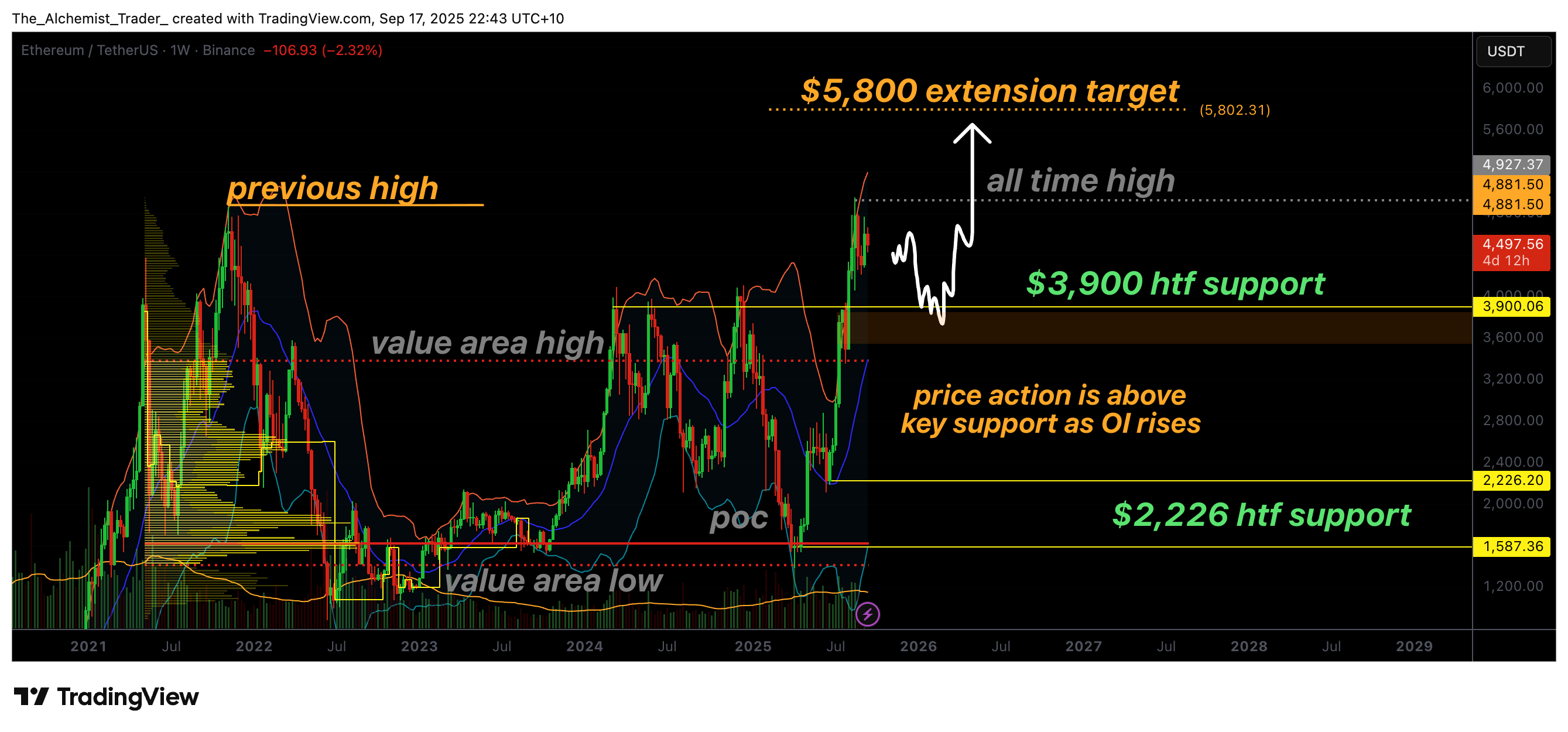Expert consensus foresees 25bps cut and short-term volatility

Ahead of the Federal Reserve meeting, markets weighed the expected rate cuts and how asset prices might react over the coming months.
Of 114 economist opinions polled by Bloomberg, 104 experts predicted the Federal Reserve would cut funding rates by 25 basis points for the first time in four years, while nine analysts forecasted a 50 bps cut.
According to QCP Capital, citing Fed Fund Futures pricing, market players saw a 66% chance of a 50 bps decision at the Federal Open Market Committee later on Wednesday, Sept. 18. Prospects of a 25 bps cut stood at 33%.
The same CME FedWatch data noted a 61% likelihood as of Sept. 16. Just last week, trader expectations calculated a 14% possibility of a 50 bps cut.
QCP Capital analysts said the impact of interest rate cuts was unclear at the moment. In a note to investors, QCP stated that the exact monetary policy decision, Dot plot projections, and Fed chair Jerome Powell’s post-FOMC remarks could also influence price movement.
That said, we are confident that volatility will be high in the days following the meeting, as traders readjust their positions over the next few weeks. The regime change could also signal the start of strong macro trends.
QCP on possible price swings post-FOMC
The total cryptocurrency market was down around 4% hours before the FOMC meeting. Bitcoin (BTC) and Ethereum (ETH) fell by over 2% each in the last 24 hours. Major altcoins like Solana (SOL), Ripple (XRP), Dogecoin (DOGE), and Toncoin (TON).
Proponents suggest that additional liquidity would accelerate price ascension in a low-rate economy. Specifically, heading into the year’s fourth quarter, market participants believe historical patterns will play out and prices will surge.
Speaking on the FOMC meeting and the Fed’s pivot, JPMorgan CEO Jamie Dimon said the monetary shift was a “minor thing.” Dimon noted that large global events like geopolitical tensions in Europe and the Middle East were likely bigger factors to consider.




